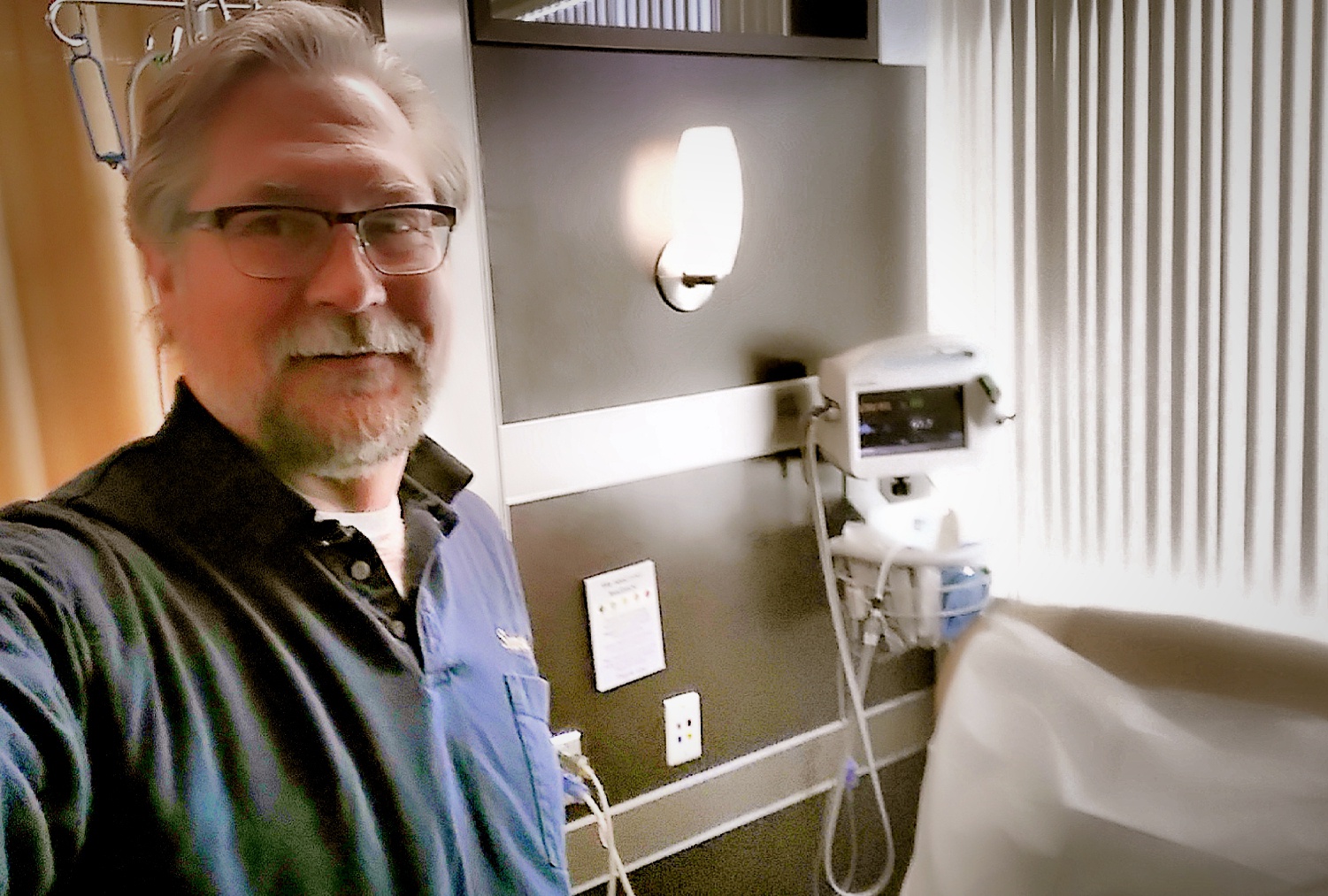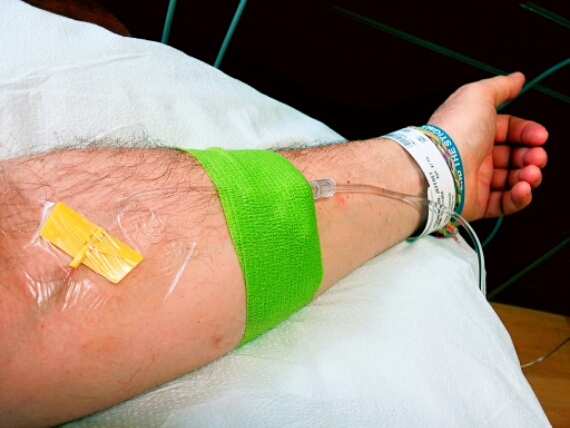
I had my infusion on Monday (as is my preference). For the past year, it has been safe to say that Thursday (today) would be my “worst” day. I should be feeling the effects in my head and my gut right now, full force; I should be tired, irritable, woozy, even slightly sick to my stomach. I should be curled up on the couch or wanting very much to be there. But I’m eating a bagel at my desk and typing this and ruminating on going out for a burger. And I’m doing the household laundry, a whole week’s worth, but that’s another story.
My last chemo cycle was pretty close to normal, but I started feeling crappy a day early and finished feeling crappy a day early, all more or less. It improved that weekend, because I was more active and felt better by Saturday. I like that as a trend and hope that this weekend is quickly cleared up — especially because the weekend after my next infusion has a camping trip clearly written on the calendar. This is a precedent I can get behind. Yesterday, however, rather than having me feeling crappy a day early, I barely felt crappy at all. It is certainly enough to give me pause. But there may be a very obvious reason for why I’m feeling better (or at least less ill) this time around. Continue reading The Chemo Diaries: The Worst Day




